
New ensemble pieces by Jurg Frey and Magnus Granberg played by Ensemble Grizzana, commissioned by Another Timbre with the request that both start from the same two fragments of early music, one by Johannes Ockeghem, the other by William Byrd, each composer producing fascinatingly different pieces that both contain echoes of the source material.
In Stock
Quantity in Basket: None
Log In to use our Wish List
Shipping Weight: 3.00 units
EU & UK Customers:
Discogs.com can handle your VAT payments
So please order through Discogs
Sample The Album:
Ensemble Grizzana-ensemble
Jurg Frey-clarinet
Magnus Granberg-celesta, harmonica, stones
Angharad Davies-violin
Mira Benjamin-violins
Anton Lukoszevieze-cello
Dominic Lash-double bass
John Lely-electronics, harmonica, stones
Richard Craig-flute, electronics
Philip Thomas-piano
Simon Allen-dulcimer, glass harp
Dimitra Lazaridou Chatzigoga-zither, electronics
Click an artist name above to see in-stock items for that artist.
Label: Another Timbre
Catalog ID: at121
Squidco Product Code: 25536
Format: CD
Condition: New
Released: 2018
Country: UK
Packaging: Cardboard Gatefold
Recorded at Huddersfield University, in Huddersfield, England, in November, 2017, by Simon Reynell.
"Jürg Frey and Magnus Granberg are two of the musicians who feature most frequently in the Another Timbre catalogue. So, when the label commissioned two new works in 2015, it was no surprise that they were the chosen composers. Performed by Ensemble Grizzana, including a stellar line-up of AT regulars alongside Frey and Granberg themselves, the resulting pieces were premiered at the Huddersfield Contemporary Music Festival at the end of November 2017, receiving a prolonged ovation and rave reviews. Fortunately, immediately after that concert, both were recorded and have been issued together on Early to Late so they can now be listened to and savoured repeatedly.
When commissioning the pieces, AT proprietor Simon Reynell expressed a wish that their music should have some kind of relation to Renaissance music, and this led to the compositions being based on Déploration sur la mort de Binchois by Johannes Ockeghem and O Lord, How Vain Are All Our Frail Delights by William Byrd. In fact, the new works sound like distant cousins of those that inspired them; it is possible to hear traces of the older works but those of Frey and Granberg are stronger. Although some listeners may choose to check out the Ockeghem and Byrd compositions, the new works can be fully appreciated in their own right without knowledge of the older ones.
One of the many fascinations of Early to Late is that Frey and Granberg were given the same brief and ended up producing different end results. Granberg's ethereal "How Vain Are All Our Frail Delights?" allows players greater individual freedom than Frey's more tightly co-ordinated "Late Silence". In addition to the core instruments, from the options available within Ensemble Grizzana, Granberg and Frey chose to add quite different instruments, giving their pieces contrasting sound palettes; Granberg played celesta on his own piece alongside glass harp and dulcimer played by Simon Allen, zither by Dimitra Lazaridou-Chatzigoga and electronics by her, Richard Craig and John Lely; Frey chose for Granberg and Lely to both play harmonica and stones.
Despite such methodological differences, Frey's and Granberg's works complement one another so perfectly that they sound designed to be heard together. By meticulous placement of silences and sounds, each of them slowly but surely creates a mood compatible with Ockeghem and Byrd, one of exquisite melancholy. The resulting music is so subtly restrained and beautiful that anything played immediately after it can easily sound crass or tawdry by comparison. Consequently, this is one of those rare albums that one feels compelled to play again as soon as it is over. Ultimately, Early to Late must be judged to be a quintessential Another Timbre album, and surely there can be no higher recommendation than that. Already on my 'best of 2018' list."-John Eyles, All About Jazz
Jürg Frey and Magnus Granberg interviewed by Dominic Lash
Dominic - I'd like to ask about the titles of the two pieces. They're both so resonant and evocative. Late Silence makes me think of Late Spring, the Ozu film. I think the music has something of the same patience and poise - but also underlying tension and pathos - that one finds in that film. How Vain Are All Our Frail Delights obviously comes from the Philip Sidney poem that William Byrd set to music; I find I can't decide whether the music echoes or challenges the emotional register of the title. Would you both like to say something about the titles?
Jürg - Not being a movie connoisseur, I hadn't heard of Late Spring by Ozu, but I may appreciate this connection with Ozu. For me Late Silence means a field of allusions, and today I was looking back in my sketchbook to find how I came to the title. And it's interesting that I didn't find this title anywhere in the sketchbook, but I did find some other attempts and words that circle round the possibilities of a title:"Desires, Delights, Vainness" (which obviously comes from the Byrd composition) "Secret Garden", "The colour(s) of absence", "Fragility", "Deploration" (which comes from the Ockeghem piece), "Volatile Voices, Motionless Phrases". "Clouds, Circles, Melodies, Silences". "Ground, Material, Place". It seems that the title "Late Silence" came to the piece without a clear elaborated reason, but was prepared by the field of associations of other possible titles. It was suddenly there, and it displaced all the other words and allusions into the background.
This combination of process and sudden illumination is part of my experience not just for titles, but also for the work on a piece itself. And then, I feel, the title is right, and now I have to reflect and to find the words for my decision.
Late silence, late pieces - we know this connection to the late work of a composer, and the title speaks to this context too. And it's also a reference to the title Déploration sur la mort de Binchois, by Johannes Ockeghem. It's a lamentation for the dead and the knowledge of a deep silence. And not least, it's a reflection on my work over a long time. After having written so many kinds of silences within the last 40 years, more and more I discover silence in the music itself.
Calm and silence are close to each other, but separated. The music creates a secure room. As long as music sounds, we are inside this secure room. In the music of Ockeghem and Byrd, this room seems to be safe. In my music it's fragile and subtle, even the pathos and the tension you mention seem to be on frail ground.
Magnus - As you said, the title of my piece is a fragment from the poem by Philip Sydney which was set to music by William Byrd in his consort song 'O, Lord How Vain', which itself served as an impetus for the music I wrote. Using a fragment of the lyrics of the song is on the one hand simply a way of recognizing and paying homage to the music that inspired me to write the piece, but on the other hand also reflects the method by which I use source materials from pre-existent musics as a point of departure for generating something different. Whether the music echoes or challenges the emotional register of the title is very much up to each one of us; there is no programmatic intent on my behalf. But from a strictly personal point of view, I'd say that I'm inclined to echo as much as challenge the question posed in Sidney's poem: echoing it in the sense that the question he poses is in fact one that I've asked myself on a more or less a daily basis for some decades now. Challenging it, as Sidney suggests, not by disdaining all these pleasures, but by trying to treasure the ones that are worth treasuring. I guess all these 'frail delights' are simply what we're left with in the end, and having the talent to cherish and enjoy them will probably make you a happier human being. Or, if I may put it this way: the frailer the delight, the greater the joy...
Dominic - I believe that the commission for these pieces specifically involved writing music in some kind of relation to the pieces by Byrd and Ockeghem that you mentioned. Could you tell us a bit more about this?
Jürg - When Magnus and I met with Simon Reynell in a café in Huddersfield in autumn 2015, Simon commissioned new pieces from us both. He also expressed a wish that the music should have some kind of relation to Renaissance music. It was a very open commission, with the musicians of the Grizzana Ensemble plus friends in mind, and this hint of a connection with early music.
From one of Simon's Facebook posts, maybe three years ago, I knew he had a special relation to Déploration sur la mort de Binchois by Ockeghem. It was one of his favourite pieces to listen to at the time. And that's how I came across the piece and I listened to it quite often as well. So when Simon asked me for the new piece, it was clear that I would take it as a starting point. Later Magnus suggested How Vain Are All Our Frail Delights by Byrd, and I remember some lovely discussions with Magnus about how to proceed - using both of the pieces or just one of them, and which one, and could we agree on one piece or should we just leave it open.
Dominic - Could you tell us a little more about how the pieces were composed and notated? They give the performers very different tasks, and I'd also be interested to hear your thoughts about playing in each other's piece.
Magnus - Well, my piece basically consists of a few different pools of materials (containing melodic and rhythmic fragments, extended melodies, single notes, chords, suggestions regarding timbre etc.) notated in conventional staff notation, along with some suggestions as to how to treat them, as well as a temporal structure which regulates when to play from which group of materials. Within these groups or pools of materials the musicians are free to choose what to play and when to play it, and the final outcome is very much a result of the superimpositions, juxtapositions and interactions of the musical materials, as well as of individual and collective processes of listening, deciding (intuitively or consciously), acting and interacting, or not interacting, with one another.
As regards how the musical materials themselves were composed, I took both Byrd's and Ockeghem's pieces as points of departure, using Byrd's song somewhat more than the Ockeghem. Rhythmic phrases were sometimes quoted, sometimes fragmented or altered, at other times transposed to other meters, or rewritten as augmentations or diminutions. Running through the piece is a so-called 'cantus firmus', an extended melody in shifting meters which is played by the clarinet more or less throughout (and at times also by other instruments). Its shifting rhythms were arrived at by combining small modules of rhythmic materials derived from the two pieces. The tonal modes were also derived from both pieces as well as from a song by Jerome Kern, 'In Love in Vain', which I got to thinking about while writing the piece, and which somehow started to resonate with me. The tonal and rhythmic materials were then subjected to certain methods and procedures in order to craft the melodic and harmonic materials that constitute the piece. As regards the temporal framework which regulates the ordering of the different groups of materials, it uses proportions found in the source materials, each group of materials being combined with a new time value more or less each time they reappear.
I think that the experience of playing Jürg's piece is quite different from playing mine. In Jürg's score we are coordinated with one another to a much larger extent, and that demands particular forms of concentration, discipline and sensibility. This is obviously a different way of working and being within the music than when you're allowed a greater amount of individual freedom of action, and the aspects of concentration, discipline and sensibility take on different forms. But I also think the two pieces have many things in common, and I'd be very interested to hear your perspective on the experience of playing in both pieces as well, Dominic.
Jürg - When I play a piece like Magnus' How vain, I'm involved as a clarinettist as well as a composer. As clarinet player, it was first of all a pleasure to play the music because everything sounded so good, the blending of the clarinet with glass harmonica, celesta, piano and zither was incredible. But it was also great to be in contact with the strings, the electronics and the colourful electronically modulated sounds of the flute, creating such a lively navigation through the whole duration of the music. And I really appreciated the role that Magnus invented for me with the cantus firmus, which is usually a prominent part of a composition. It does seem to be some kind of "subject" in this piece too, but then the score says: The Cantus Firmus is (...) to be played very softly, almost silently. And later: (...) the Cantus Firmus at times only being present within the mind of the performer.
From the point of view of a composer, I likewise enjoyed how good the piece sounded. So many different fragments fitting together perfectly, and foreground and background balanced in an enigmatic way. It maintains a perpetual suspense across forty minutes, and when I'd seen the score for the first time, I'd just seen a huge collection of snippets...
For my piece, the material comes from Ockeghem, Byrd and myself - like three standpoints that are not mixed. The materials from Ockeghem and Byrd are used literally or slightly changed. So, for example, at the beginning of the piece, the hammered dulcimer and clarinet play the Byrd tune (and later Ockeghem, and then again Byrd), the violins play the Ockeghem melody, rhythmically transformed, and I myself added two notes for the piano, "a" and "g". This behaviour regarding the material is established at the very beginning in a strict way, and is also effective for decisions through the whole piece.This process also speaks to a general focus in my daily work: how to find my music, be it in the notes from Ockeghem or in my own material. Recently I read this sentence by William Carlos Williams, which I'd like to quote here: "The same thing exists, but in a different condition when energized by imagination".
Dominic - For me playing both pieces was very much to do with both trust and fragility, but in rather different senses. The way your piece is composed, Magnus, it almost feels like it can't go "wrong" if the musicians approach it with the right intention and spirit. Obviously some versions will be more successful than others, but that is beyond anybody's control. So the process of playing required great attentiveness, but was actually a calm and comfortable experience as long as you trusted the group and the music - in a sense the fragility seemed to lie more in the sounding result than the execution.
With your piece, Jürg, there was a different kind of tension because it requires precise things to be played at very precise times. So this produced a slightly different kind of trust, which involved trusting the fragile balance (to echo the title of another of your pieces) between the various musicians and their various tasks as it developed in time. This balance was perhaps a little more like a tightrope walker's balance than is the case in Magnus's piece!
Magnus - Yes, I agree that concepts of trust and fragility relate to both Jürg's and my music and feel central to both our work. And I think you're right in pointing to the differences in how these concepts apply in these two cases. Being a composer-performer with a background in improvisation, and mostly playing my own music, it was wonderful getting to play Jürg's music and to experience how differently these two concepts applied, while still having the most important aspects of them in common: the question of having trust in each other as individuals as well as a collective, and having trust in the music itself. And, if I may put it this way, to recognise and value the fragility of this trust.
Dominic - Both pieces are very beautiful, but they don't just contain obviously "beautiful" sounds - they also have elements of noise, of roughness, of plainness. I'm reminded of a well-known interview with Helmut Lachenmann by Paul Steenhuisen, in which he talks about teaching a class of children and showing them two photographs:
"One was an attractive photograph of the movie star Sophia Loren. The other was a drawing by Albrecht Dürer, who had drawn a picture of his mother: very old, with a long nose, a bitter-looking face. She had had a hard life and her face was full of wrinkles. I showed them the two pictures and asked, 'Who is more beautiful?' They were totally confused, and then came a wonderful answer I will never forget - it was the highlight of my life. A girl said, 'I think the ugly one is more beautiful.'"
Does this kind of dialectical thinking have a relevance to the aesthetics of your musics? Or are there different kinds of relationships between the "beautiful" and the "not-beautiful" at work?
Magnus - I guess most of us share the experience of the little girl in Lachenmann's lovely anecdote: sometimes finding that things which deviate from a conventional and exclusive concept of beauty can be richer, more complex and rewarding, and more 'truly' beautiful than things that adhere exclusively to a more conventional and narrow definition of beauty. That said (and not being an expert either on aesthetics in general, or on dialectical aesthetics in particular), I guess I'm just trying to make a music which can hopefully do something to encompass and reconcile such categories with one another, making it a little easier to perceive and understand things without attaching too many preconceived notions to them. To be able to delight in the fragility of experience itself, I guess.
Jürg - I don't want to stay too long with the Lachenmann quote; I think it says more about him than about the complexity of our experience of beauty. And - though in the context of that class it may work - I also think that for Lachenmann himself it's not as simple as 'the ugly is beautiful and vice versa', as we know from his music. Moreover it refers to something that we know well from other music: Monteverdi, Mozart ... all the sad, ugly, terrible moments in their music which sound so incredibly beautiful.
I looked at the two pictures on my computer - the drawing by Albrecht Dürer and a casual photograph of Sophia Loren - and I must confess that I can't make a quick and easy decision. The two pictures represent separate categories and I see a very clear dividing line between them. Sophia Loren looks at the photographer, Albrecht Dürer looks at his mother.
The one is Sophia Loren, she looks beautiful, and she knows it. The other is Dürer's mother, she doesn't care how she looks, but it was Dürer who drew the picture, and with all his craft and imagination he made this impressive work, and he knows it.
Let me talk about my experience when I compose. Now I'm in Dürer's place and I use all the possibilities of my craft to make a piece that sounds good, independently of whether the sounds are in the conventional sense beautiful or not. I like my sounds, I have a relation to them and I want to give them the possibility of existing in my piece. I create a ground and a musical environment for them to sound good. And I'm looking for reasons for them to be beautiful.
But to sound beautiful is not a task in itself. Beauty happens as a sideline. When beauty comes into focus as an end in itself, then beauty begins to disappear. The work may touch a border, but I keep the idea of beauty outside.
I also know this: sometimes sounds might come in the Sophia Loren mood; they pose for the audience. But it's not the sounds themselves that do so, it's the composer who doesn't prevent the sound from doing so.
I have never thought about the ugly and the beautiful in a dialectic sense in my music. Beauty is fluid, and even authenticity, as an idea behind beauty, is not a sure fact; it's fragile and has to be worked out anew in each piece. I never consider the fragile surface in my music as a source of beauty. I can say this because during the process of composing I encounter so many fragile sounds and they are not all beautiful. But I discover music and the possibilities of bringing it to life, at least for a moment.
Get additional information at All About Jazz
Artist Biographies
• Show Bio for Jurg Frey "Jürg Frey was born in 1953 in Aarau, Switzerland. Following his musical education at the Concervatoire de Musique de Genève, he turned to a career as a clarinetist, but his activities as composer soon came to the foreground. Frey developed his own language as a composer and sound artist with the creation of wide, quiet sound spaces. His work is marked by an elementary non-extravagence of sound, a sensibilty for the qualities of the material, and precision of compositional approach. His compositions sometimes bypass instrumentation and duration altogether and touch on aspects of sound art. He has worked with compositional series, as well as with language and text. Some of these activities appear in small editions or as artist's books as individual items and small editions (Edition Howeg, Zurich; weiss kunstbewegung, Berlin; complice, Berlin). His music and recordings are published by Edition Wandelweiser. Frey has been invited to workshops as visiting composer and for composer portraits at the Universität der Künste Berlin, the Universität Dortmund and several times at Northwestern University and CalArts. Some of the other places his work has developed are the concerts at the Kunstraum Düsseldorf, the Wandelweiser-in-Residence-Veranstaltungen in Vienna, the Ny music concerts in Boras (Sweden), the cooperation with Cologne pianist John McAlpine, the Bozzini Quartet (Montréal), QO-2 (Bruxelles), Die Maulwerker, incidental music, as well as the regular stays in Berlin (where during the last years many of his compositions were premiered). Frey is a member of the Wandelweiser Komponisten Ensemble which has presented concerts for more than 15 years in Europe, North America and Japan. Frey also organizes the concert series moments musicaux aarau as a forum for contemporary music." ^ Hide Bio for Jurg Frey • Show Bio for Magnus Granberg "Magnus Granberg is a composer and performer working at an intersection between contemporary chamber music and improvisation. He is based in Stockholm, Sweden. Born in Umeå in 1974, he studied saxophone and improvisation at the University of Gothenburg and in New York in his late teens and early twenties. Self-taught as a composer, he formed his own ensemble Skogen in 2005 trying to integrate experiences, methods and materials from various traditions of improvised and composed musics into a new modus operandi. Now mainly working with the ensemble Skogen and the newly formed Skuggorna och ljuset, while also writing music on commission for different ensembles and projects. He is also active as an improvisor in different contexts, mainly playing the clarinet. His music has been performed in Norway, Sweden, Switzerland, the United States, England, Austria, Hungary and Slovenia, broadcast by public radio channels in England (BBC Radio 3 and 6), Germany (SWR 2), Sweden (SR P2), Estonia, Slovenia, Serbia, Hungary and the United States, and has been published by the British record label Another Timbre. Recent work includes a commission from Another Timbre and Ensemble Grizzana and collaborations with musicians such as David Sylvian, Christoph Schiller and the Swiss duo Diatribes. He has in the last decade also, more or less regularly, collaborated with musicians such as Angharad Davies, Tisha Mukarji, Tetuzi Akiyama, Toshimaru Nakamura, Anna Lindal, Kristine Scholz, Rhodri Davies, Simon Allen, Christoph Schiller and Ko Ishikawa." ^ Hide Bio for Magnus Granberg • Show Bio for Angharad Davies "Angharad Davies is a violinist, one at ease in both improvising and composition, with a wide discography as part of varied range of ensembles and groups. She's a specialist in the art of 'preparing' her violin, adding objects or materials to it to extend its sound making properties. Her sensitivity to the sonic possibilities of musical situations and attentiveness to their shape and direction make her one of contemporary music's most fascinating figures. 2015 has seen her being commissioned for a new work at the Counterflows Festival, Glasgow and premiering Eliane Radigue's new solo for violin, Occam XXI at the El Nicho Festival, Mexico. She's performed at, the Queen Elizabeth Hall, BBC Proms, Music We'd Like to Hear's concert series, is an associate artist at Cafe Oto, is a member of Apartment House, Cranc and Common Objects, been artist in residence at Q-02, and played live with Tony Conrad in the Turbine Room at the Tate Modern. Other collaborations have featured the likes of John Butcher, Daniela Cascella, Rhodri Davies, Julia Eckhardt , Kazuko Hohki, Roberta Jean, Lina Lapelyte, Dominic Lash, Tisha Mukarji, Andrea Neumann, Rie Nakajima, Tim Parkinson, J.G.Thirlwell, Stefan Thut, Paul Whitty, Manfred Werder, Birgit Ulher, Taku Unami and she's released records on Absinth Records, Another Timbre, Potlatch and Confrontrecords." ^ Hide Bio for Angharad Davies • Show Bio for Mira Benjamin "Mira Benjamin is a Canadian violinist, researcher and new-music instigator. She performs new and experimental music, with a special interest in microtonality & tuning practice. She actively commissions music from composers at all stages of their careers, and develops each new work through multiple performances. Current collaborations include new works by Anna Höstman, Scott McLaughlin, Amber Priestley, Taylor Brook and James Weeks. Since 2011, Mira has co-directed NU:NORD - a project-based music and performance network which instigates artistic exchanges and encourages community building between music creators from Canada, Norway & the UK. To date NU:NORD has engaged 79 artists and commissioned 62 new works. Through this initiative, Mira hopes to offer a foundation from which Canadian artists can reach out to artistic communities overseas, and provide a conduit through which UK & Norwegian artists can access Canada's rich art culture. Originally from Vancouver, British Columbia, Mira lived for ten years in Montréal, where she was a member of Quatuor Bozzini. Since 2014 she has resided in London (UK), where she regularly performs with ensembles such as Apartment House, Decibel, and the London Contemporary Orchestra Soloists, and is currently the Duncan Druce Scholar in Music Performance at the University of Huddersfield. Mira is the recipient of the 2016 Virginia Parker Prize from the Canada Council for the Arts. The prize is awarded annually to a Canadian musician in recognition of their contribution to the artistic life in Canada and internationally." ^ Hide Bio for Mira Benjamin • Show Bio for Anton Lukoszevieze "Cellist Anton Lukoszevieze (born 1965 in the UK) is one of the most diverse performers of his generation and is notable for his performances of avant-garde, experimental and improvised music. Anton has given many performances at numerous international festivals throughout Europe and the USA (Maerzmusik, Donaueschingen, Wien Modern, GAS, Transart, Ultima, etc.etc.). He has also made frequent programmes and broadcasts for BBC Radio 3, Danish Radio, SR2, Sweden, Deutschland Rundfunk, WDR, Germany and ORT, Austria. Deutschlandfunk, Berlin produced a radio portrait of him in September, 2003. Anton has also performed concerti with the City of Birmingham Symphony Orchestra at the 2001 Aldeburgh festival and the Netherlands Radio Symphony Orchestra. He has collaborated with many composers and performers including David Behrman, Alvin Lucier, Amnon Wolman, Pierre Strauch, Rytis Mazulis, Karlheinz Essl, Helmut Oehring, Christopher Fox, Philip Corner, Alvin Curran, Phill Niblock and Laurence Crane, He is unique in the UK through his use of the curved bow (BACH-Bogen), which he is using to develop new repertoire for the cello. From 2005-7 he was New Music Fellow at Kings College, Cambridge and Kettles Yard Gallery. Anton is the subject of four films (FoxFire Eins) by the renowned artist-filmmaker Jayne Parker. A new film Trilogy with compositions by Sylvano Bussotti, George Aperghis and Laurence Crane premieres at The London Film Festival, October 2008. In November will premiere a new hour long work by Christopher Fox for cello and the vocal ensemble Exaudi commissioned by the Huddersfield Contemporary Music Festival and will also present new solo works for cello and live electronics. Anton is also active as an artist, his work has been shown in Holland (Lux Nijmegen), CAC, Vilnius, Duisburg (EarPort), Austria, (Sammlung Essl), Wien Modern, The Slade School of Art, Kettles Yard Gallery, Cambridge Film Festival and Rational Rec. London. His work has been published in Musiktexte, Cologne, design Magazine and the book SoundVisions (Pfau-Verlag, Saarbrucken, 2005). Anton Lukoszevieze is founder and director of the ensemble Apartment House, a member of the radical noise group Zeitkratzer and recently made his contemporary dance debut with the Vincent Dance Company in Broken Chords, Dusseldorf." ^ Hide Bio for Anton Lukoszevieze • Show Bio for Dominic Lash "Born Cambridge, England, in January 1980; played bass guitar since 1994; studied with Hugh Boyd and Pascha Milner and at Basstech (London) with Rob Burns, Terry Gregory and others. Played double bass since 2001; basically self taught, with grateful thanks to Simon H. Fell. First class BA in English Literature from Oxford University (2002). Received MA Composition from Oxford Brookes University in 2003, having studied with Paul Whitty, Ray Lee and others. Received PhD from Brunel University in 2010, having studied the work of Derek Bailey, Helmut Lachenmann and JH Prynne and been supervised by Richard Barrett and John Croft." ^ Hide Bio for Dominic Lash • Show Bio for John Lely "I am a composer and musician based in London, UK. I write music and words, play objects and electronics, and curate music events. I am interested in the variety of sounds, correspondences and experiences that can emerge through the use of limited sets of musical building blocks. My pieces explore sound, silence, proportion, process, perception and listening. I am co-author, with James Saunders, of Word Events: Perspectives on Verbal Notation (Continuum 2012), a book about text scores. Together with composers Tim Parkinson and Markus Trunk, I curate Music We'd Like to Hear, a concert series described by TEMPO as 'an oasis of thoughtful and idealistic music-making'." ^ Hide Bio for John Lely • Show Bio for Richard Craig "Richard Craig was born in Glasgow and studied flute at the Royal Scottish Academy of Music and Drama with Richard Blake and Sheena Gordon. Graduating in 2003 with a degree and solo diploma, he continued his studies (supported by the Scottish International Educational Trust and a Dewar Arts award) at the Conservatoire National de Region Strasbourg with Mario Caroli and Claire Gentilhomme. In 2006 he received a "diplôme de spécialisation" from the CNR de Strasbourg, achieving 'unanimité du jury'. During this time Richard also received guidance from Pierre-Yves Artaud. He now has a burgeoning international career performing with many of the world's finest groups and musicians. Persistently challenging our perceptions of the instrument and new music, Richard Craig has developed a technique and repertoire that has attracted widespread acclaim as a musician and programmer, and it is this which defines his work: a resistance to be cornered by expectations, trends or traditional hierarchies. As a soloist, chamber musician and lecturer, Richard has worked with composers such as Brian Ferneyhough, Beat Furrer, James Dillon, Salvatore Sciarrino, Kaija Saariaho, Richard Barrett, Helmut Lachenmann and musicians such as Emilio Pomarico, Enno Poppe, Stefan Asbury, Pierre-Yves Artaud, Roberto Fabbriciani and Rohan de Saram. More recently, Richard has worked as an improviser with performers such as Johan Zakrisson, David Stackenäs and later in 2010, Barry Guy. He also maintains close contact with new music groups musikFabrik Cologne, Klangforum Wien, KammarensembleN Stockholm and the Hebrides Ensemble performing with them in festivals throughout Europe: Venice Biennale, Festival d'Automne, UltraSchall, Maerzmusik, the St. Magnus Festival, Wittener Musiktage. Richard is a regular member of C.C.P Stockholm and SMASH Salamanca. Broadcasts include WDR Cologne, YLE Finland, Radio France, Radio Nacional de España, Swedish Radio, ARTE, and Icelandic RUV. His solo disc, INWARD, is on general release through Metiér, featuring works by Ferneyhough, Barrett, Croft, Bång and Karski, among others. Richard is also a laureate of numerous international competitions: Grand Prix and a Primo Speciale (for his performance of works by Sciarrino) from the XIth and XIIth L'Accademia Concordia Concorso Internazionale di Interpretazione di Musica Contemporanea, Italy and 'prix du jury' from the XIVth Penderecki international chamber music competition, Poland. As a pedagogue he has given classes and workshops to musicians around the world (Columbia University, New York, CNR Strasbourg, France, Cork University, Ireland, Leeds University, Aberdeen University, Huddersfield and Napier University Edinburgh), an activity that he sees as vital to the music of our time. As of 2010, Richard will be Visiting Lecturer in Performance at the University of Aberdeen. He has also been awarded an arbetesstipendium from the Swedish Arts Grant Authority for 2009/10 in recognition for his work in contemporary music." ^ Hide Bio for Richard Craig • Show Bio for Philip Thomas "Philip Thomas (b.1972, North Devon) specialises in performing new and experimental music, including both notated and improvised music. He places much emphasis on each concert being a unique event, designing imaginative programmes that provoke and suggest connections. He is particularly drawn to the experimental music of John Cage, Morton Feldman and Christian Wolff, and composers who broadly work within a post-Cageian aesthetic. In recent years he has been particularly associated with the music of Christian Wolff, giving the world premiere of his Sailing By in 2014 and Small Preludes in 2009, the UK premiere of Long Piano (Peace March 11), having co-edited and contributed to the first major study of Wolff's music, Changing the System: the Music of Christian Wolff, published by Ashgate Publications in 2010, and currently recording all of Wolff's solo piano music for sub rosa. He is an experienced performer of John Cage's music, having performed the Concert for piano and orchestra with both Apartment House and the Merce Cunningham Dance Company as well as most of the solo piano and prepared piano music, including a unique 12-hour performance of Electronic Music for piano He has commissioned new works from a number of British composers whose ideas, language and aesthetic have been informed in some ways by the aforementioned American composers, such as Stephen Chase, Laurence Crane, Richard Emsley, Christopher Fox, Bryn Harrison, John Lely, Tim Parkinson, Michael Parsons, and James Saunders. In recent years Philip has pursued a passion for freely improvised music, after significant encounters with the music of AMM and Sheffield-based musicians Martin Archer, Mick Beck and John Jasnoch. He has worked with improvisers in a variety of contexts and recently devised a programme of composed music by musicians more normally known as improvisers as well as others who have been influenced by improvisation in some form. This led to a CD release, Comprovisation, which featured newly commissioned works by Mick Beck, Chris Burn and Simon H Fell. Other CD releases include music by Martin Arnold, Laurence Crane, Christopher Fox, Jürg Frey, Bryn Harrison, Tim Parkinson, Michael Pisaro, James Saunders, Christian Wolff, as well as with improvisers Chris Burn and Simon H Fell. Philip is a regular pianist with leading experimental music group Apartment House, with whom he has performed in festivals across the UK and Europe. He has also performed with the Quatuor Bozzini, and in duos with Mark Knoop, Ian Pace and John Tilbury (piano duet and two pianos) and James Saunders (electronics). In 1998 Philip was awarded a PhD from Sheffield University in the performance practice of contemporary piano music. Between 2000 and 2005, he was Head of the Sheffield Music School whilst pursuing an active performing and teaching career. He joined the staff team at the University of Huddersfield in 2005, and became Professor of Performance in 2015. Philip is one of the Directors of CeReNeM, the University's Centre for Research in New Music. He continues to live in Sheffield, where he premieres the majority of his programmes, with his wife Tiffany and children Naomi and Jack." ^ Hide Bio for Philip Thomas • Show Bio for Simon Allen "Simon Allen is a composer and interpreter of new music using improvisation, computer, pencil and paper with equal measure. As composer and director, his Resonance At The Still Point Of Change for multiple moving images, lighting, voices and ensemble, was premiered as part of the Cultural Olympiad. In performance, film and theatre settings his collaborations include work with John Tilbury, Christian Wolff, Nigel Osborne, David Toop, Katie Mitchell, FOLK///projects and as a member of Swedish based ensemble Skogen, with Magnus Granberg and David Sylvian." ^ Hide Bio for Simon Allen • Show Bio for Dimitra Lazaridou Chatzigoga "Dimitra Lazaridou-Chatzigoga (b. 1981, Thessaloniki, Greece) is a musician and a linguist based in London. She is active in experimental and improvised music since 2006. She plays the zither, a string instrument, and uses ebows and objects on its resonance box to produce sustained or granulated sounds. Her approach focuses on the interplay between spontaneity and elaborate techniques. She has performed solo, in long-term collaborations or in occasional formations with Jennifer Allum, Alfredo Costa Monteiro, Angharad Davies, Rhodri Davies, Matt Davis, Axel Dörner, Phil Durrant, Ferran Fages, Anastasis Grivas, Franz Hautzinger, Robin Hayward, Chris Heenan, Ute Kanngieser, Grundik Kasyansky, Martin Küchen, Tisha Mukarji, Ivan Palacký, Eddie Prévost, Henrik Olsson, Christine Sehnaoui, Birgit Ulher and Daichi Yoshikawa among others. Her first solo album 'stroke by stroke' was released in 2011 on Organized Music from Thessaloniki. Recently, she released 'Workshop concert' on Matchless Recordings with Jennifer Allum, Ute Kanngieser, Grundik Kasyansky, Eddie Prévost and Daichi Yoshikawa and 'Accidents of matter or of Space' on suppedaneum that includes realizations of Sarah Hughes' composition (can never exceed unity) performed with Rhodri Davies, Patrick Farmer, Jane Dickson and Neil Davidson. In the last few months, she performed with Grundik Kasyansky and Daichi Yoshikawa at the OTO Project Space, with Phil Durrant at GVart and she toured in Sweden with Angharad Davies, Axel Dörner and Henrik Olsson." ^ Hide Bio for Dimitra Lazaridou Chatzigoga
3/26/2025
Have a better biography or biography source? Please Contact Us so that we can update this biography.
3/26/2025
Have a better biography or biography source? Please Contact Us so that we can update this biography.
3/26/2025
Have a better biography or biography source? Please Contact Us so that we can update this biography.
3/26/2025
Have a better biography or biography source? Please Contact Us so that we can update this biography.
3/26/2025
Have a better biography or biography source? Please Contact Us so that we can update this biography.
3/26/2025
Have a better biography or biography source? Please Contact Us so that we can update this biography.
3/26/2025
Have a better biography or biography source? Please Contact Us so that we can update this biography.
3/26/2025
Have a better biography or biography source? Please Contact Us so that we can update this biography.
3/26/2025
Have a better biography or biography source? Please Contact Us so that we can update this biography.
3/26/2025
Have a better biography or biography source? Please Contact Us so that we can update this biography.
3/26/2025
Have a better biography or biography source? Please Contact Us so that we can update this biography.
Track Listing:
1. How Vain 40:50
2. Late Silence 33:49
Compositional Forms
London & UK Improv & Related Scenes
Large Ensembles
New in Compositional Music
Search for other titles on the label:
Another Timbre.


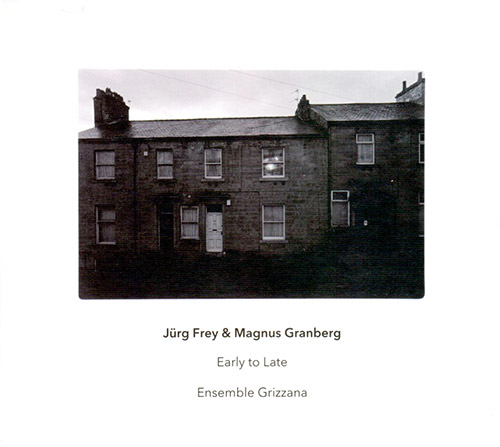




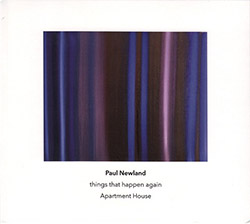

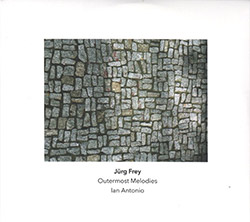

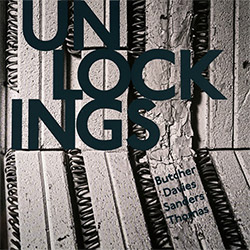
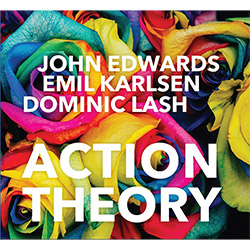

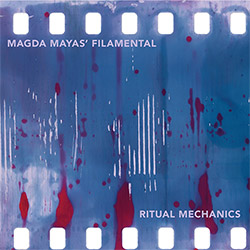

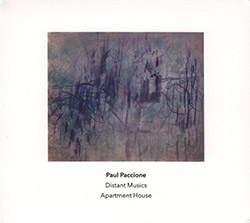
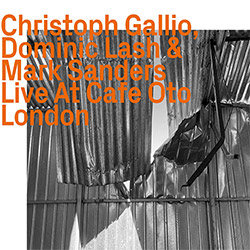
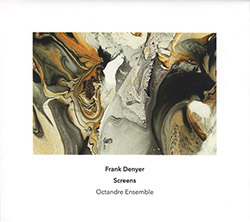
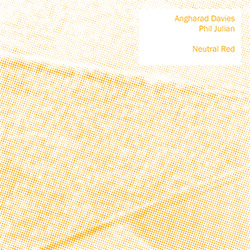
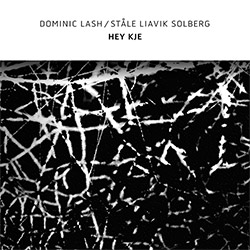



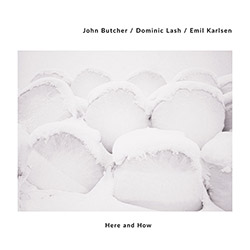






![Ackerley / Prymek / Turner: All Hope With Sleeping Minds [CASSETTE]](https://www.teuthida.com/productImages/misc4/35950.jpg)
![Myers, David Lee : Tin Drop Tear [BOOK w/ DOWNLOAD]](https://www.teuthida.com/productImages/misc4/36030.jpg)



![Schindler, Udo / Sandy Ewen / Damon Smith: Munich Sound Studies Vols. 4, 5 & 6 [3 CDs]](https://www.teuthida.com/productImages/misc4/35966.jpg)






![Turbulence Orchestra & Sub-Units: Smear Out the Difficulties (Double Live) [2 CDs]](https://www.teuthida.com/productImages/misc4/36048.jpg)
![Perelman, Ivo / Tyshawn Sorey: Paralell Aesthetics [2 CDs]](https://www.teuthida.com/productImages/misc4/35871.jpg)


![Sjostrom, Harri: SoundScapes #4 Festival Berlin 2023 [3 CDs]](https://www.teuthida.com/productImages/misc4/35874.jpg)

![Musicworks Magazine: #150 Winter 2024/25 [MAGAZINE + CD]](https://www.teuthida.com/productImages/misc4/36035.jpg)





![Glenn, Jordan: Flustered [CASSETTE]](https://www.teuthida.com/productImages/misc4/35948.jpg)


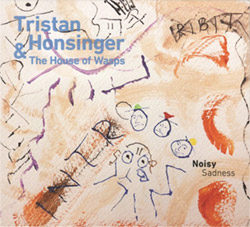
![Lindorff-Ellery, Evan: Church Recordings from Monhegan [CASSETTE]](https://www.teuthida.com/productImages/misc4/35949.jpg)
![Schindler, Udo / Werner Dafeldecker / Gunnar Geisse: Travelling Sound Images - Cognitive Transfers [Trio]](https://www.teuthida.com/productImages/misc4/35767.jpg)

![Egberth, Dennis: The Dennis Egberth Dynasty [VINYL]](https://www.teuthida.com/productImages/misc4/35549.jpg)


![Schindler, Udo / Rieko Okuda / Eric Zwang Eriksson: Disturbed Terrains [2 CDs]](https://www.teuthida.com/productImages/misc4/35330.jpg)
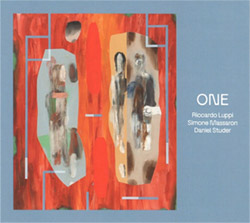
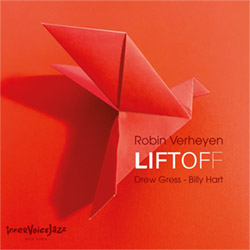
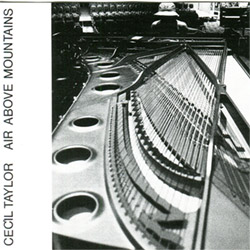


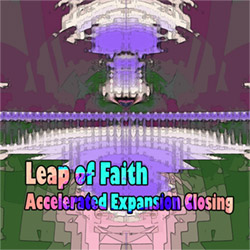
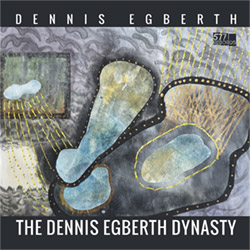
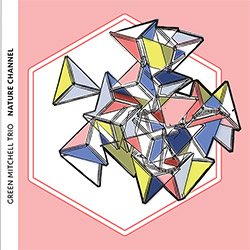

![Wolf Eyes / Anthony Braxton: Live At Pioneer Works, 26 October 2023 [VINYL]](https://www.teuthida.com/productImages/misc4/35839.jpg)




![Olencki, Weston : Pearls Ground Down To Powder [VINYL]](https://www.teuthida.com/productImages/misc4/35956.jpg)
![Myers, David Lee: Oculus [2CDs]](https://www.teuthida.com/productImages/misc4/35857.jpg)


![dustsceawung: dustsceawung [CASSETTE w/ Download]](https://www.teuthida.com/productImages/misc4/35753.jpg)




![Halls of the Machine: Atmospheres For Lovers And Sleepers [CASSETTE w/ DOWNLOAD]](https://www.teuthida.com/productImages/misc4/35806.jpg)



![AHC (Alexander Cooper): Lase [2 CDs]](https://www.teuthida.com/productImages/misc4/35754.jpg)



![Fagaschinski, Kai / Yan Jun : Graveyard Processions [VINYL w/ DOWNLOAD]](https://www.teuthida.com/productImages/misc4/35474.jpg)
![Brant, Cody / Carl Kruger: Smoke Detail [CASSETTE w/ DOWNLOAD]](https://www.teuthida.com/productImages/misc4/35551.jpg)





![Zorn, John / JACK Quartet: The Complete String Quartets [2 CDs]](https://www.teuthida.com/productImages/misc4/35609.jpg)

![Lonsdale, Eden: Dawnings [2 CDs]](https://www.teuthida.com/productImages/misc4/35480.jpg)






![Sanna, Claudio: Compositori Sardi Contemporanei II [2 CDs]](https://www.teuthida.com/productImages/misc4/35317.jpg)






![Zurria, Manuel: Fame di Vento [3 CDs]](https://www.teuthida.com/productImages/misc4/35167.jpg)


![Electric Bird Noise / Derek Roddy: 8-10-22 [CD EP]](https://www.teuthida.com/productImages/misc4/35970.jpg)








![Elephant9 : Mythical River [VINYL]](https://www.teuthida.com/productImages/misc4/34624.jpg)



![Elephant9 with Terje Rypdal: Catching Fire [VINYL 2 LPs]](https://www.teuthida.com/productImages/misc4/35355.jpg)
![Deerlady (Obomsawin, Mali / Magdalena Abrego): Greatest Hits [VINYL]](https://www.teuthida.com/productImages/misc4/34876.jpg)







![Surplus 1980: Illusion of Consistency [CD]](https://www.teuthida.com/productImages/misc4/35069.jpg)
![Staiano, Moe: Away Towards the Light [VINYL + DOWNLOAD]](https://www.teuthida.com/productImages/misc4/35037.jpg)



![Caveira (Gomes / Sousa / Abras / Ferrandini): Ficar Vivo [VINYL]](https://www.teuthida.com/productImages/misc4/34643.jpg)
![Coley, Byron: Dating Tips for Touring Bands [VINYL]](https://www.teuthida.com/productImages/misc4/17906.jpg)

![Lost Kisses: My Life is Sad & Funny [DVD]](https://www.teuthida.com/productImages/misc4/lostKissesDVD.jpg)